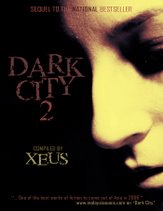Drama 101: The Basics
I promised I would share whatever I learnt about writing through my new motto: “To learn is good, to share is better”. So this is the opening salvo.

Prison Break Season 1 (Golden Globe nominated for Best Drama and originally conceived as a mini-series called “Steven Spielberg presents Prison Break” before the great director bowed out to direct ‘War of the Worlds’) is the most classical textbook example of Drama 101 you’ll ever get. Drama 101 is deconstructed like this:
Act 2: Throw stones at him
Act 3: Get him safely down again
So let’s you say you write the premise:
“Man willfully commits a crime to he can go to prison to break out his brother, who is innocent but on Death Row, after exhausting all legal possibilities. To do this, he tattoos a map of the prison on the one thing he can bring with him inside – his body. He has 1 month to do this before his brother faces the electric chair.”
Okay, so you’ve put him up the “tree”, which is the prison. You’ve even given him a timeline: 1 month – to set the pace.
- Things that can happen to your hero if he remains PASSIVE (which means if he’s static, and doesn’t choose to act at all):
- he can be caught up in all events that can happen in a prison – riots, racial war, drug trafficking, black market profiteering etc
- But your hero isn’t passive (which means he’s not going to sit down and just let things happen to him), he has an overarching plan, which makes him ACTIVE. So now, you jot down all the things that can happen to dampen his escape plan, called OBSTACLES:
- If he maps out his escape route, have things go wrong to that route at every turn:
OBSTACLES:
MECHANICAL: unexpected physical barriers, such as a reinforced concrete duct, inability to get the tools/chemicals he needs to escape
LEGAL: forces can conspire to transfer him/his brother out, his brother’s execution date is speeded up, he gets a new cellmate who doesn’t sleep so he can’t dig his way out
PEOPLE: people don’t behave the way he wants them to, people he wants to manipulate can’t be manipulated, people find out about his escape plan, people double-cross him, he’s hampered by his own conscience, people he plans to use die unexpectedly
Then you go t o ACT 3: Get him safely down again, which will be explored in a later post.
Okay, now let’s take something as radically different from a male-orientated prison story as you can get: Chick Lit 101. The same rules apply:
Act 1: Get woman up tree – let’s say she desires a man/job she can’t hope to get at the outset of the story because she’s such a pathetic loser
Act 2: Throw stones at her – the obstacles are plentiful: man has beautiful current girlfriend, man has terrifying mother/sister, man won’t give her time of day because of her looks, her boss is a terrifying bitch who works her from 8 to midnight, she has a poisonous office co-worker who’s out to get her
Act 3: She solves all her problems, gets man/coveted job and all’s well that ends well.
It’s easy, isn’t it? Now we can take as many genres as we can get (horror, sci-fi, fantasy, crime) and apply these same rules and see what we can come with. We’ll already have an outline for an entire novel.
NEXT: BUT IN REAL LIFE, WE WRITERS HAVE DIFFICULTY THINKING OF OBSTACLES FOR OUR HERO TO SOLVE! AND WHAT’S WORSE, GETTING HIM SAFELY DOWN AGAIN!



4 comments:
Never mind, you can visit me another time in Klang, and bring the Prison Break DVDs with you :) I've thoroughly enjoyed both seasons and am looking forward to season 3. I only watch it for the pleasure and don't 'deconstruct' it like you did but I do know every episode ends with an obstacle to the dishy hero and it's a nail biting cliff hanger every time.
Lydia, it seems we have a lot to do when I finally visit you in Kalng :) Eat bak kut teh, go see ships, eat your pineapple tarts, ha ha. I will make it next time to your place. Taking leave again around Xmas, but you are usually busy then, right?
Everything I watch, I 'deconstruct' nowadays. Sad ah? No more enjoyment as an ordinary viewer.
Be careful, you two, in Klang (sorry, Lydia). A couple of months ago, a friend was hit on the head with the handle of a parang and had her handbag snatched by a couple of men on a motorbike. Good thing she wasn't badly injured, but the shock was terrible.
Xeus, thanks for the fascinating lesson.
Oh dear, but it happens everywhere, Argus. Remember, I had my handbag snatched at the Pavilion, of all places.
Always love to share what I 'deconstruct', Argus :) Here's to us Malaysian writers telling better and more exciting stories. Like Shashi says, we need to plot and twist better. And what better ways to learn that than from master plotters and twisters who make an actual living out of it?
Post a Comment